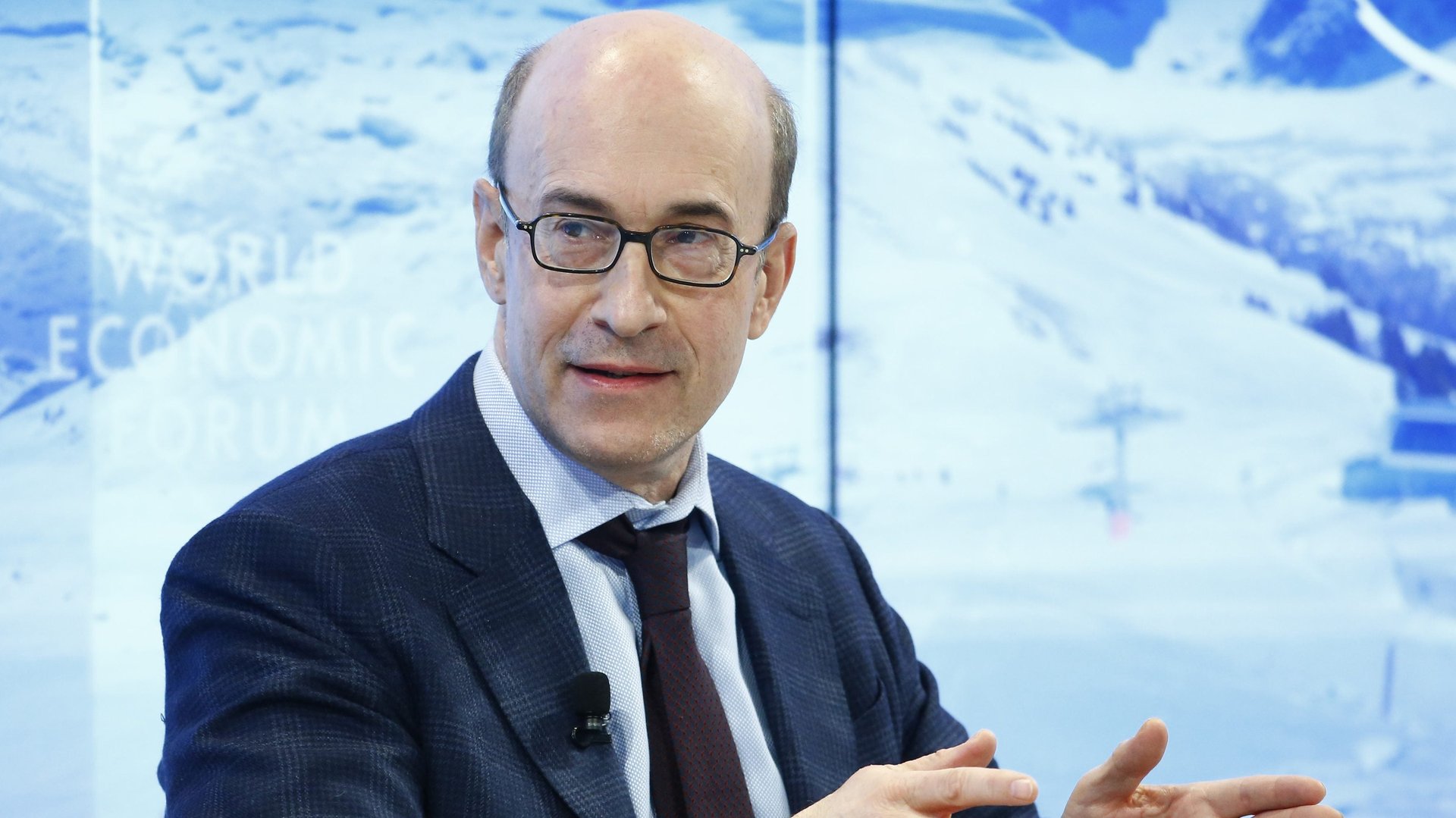Trump is asking for $850 billion of stimulus. A former IMF chief economist says it’s a start
The Trump administration plans to ask Congress for $850 billion of stimulus spending to bolster the US economy from a coronavirus-induced disruption. Kenneth Rogoff, former chief economist at the IMF, says those kinds of eye-popping numbers could be reasonable—for round one.


The Trump administration plans to ask Congress for $850 billion of stimulus spending to bolster the US economy from a coronavirus-induced disruption. Kenneth Rogoff, former chief economist at the IMF, says those kinds of eye-popping numbers could be reasonable—for round one.
Treasury secretary Steven Mnuchin plans to show details of the proposal to Senate Republicans today, according to the Washington Post. A package of that magnitude could be even bigger than the $750 billion proposal that’s expected from Senate minority leader Charles Schumer.
In hopes of slowing the spread of Covid-19, officials are restricting travel and cracking down on public gatherings. While the measures have the potential to reduce deaths and infections, they will also crater business prospects for many companies, likely causing a synchronized worldwide disruption that has few historical parallels.
For “round one,” some hundreds of billions of fiscal stimulus in the US would be a good start, Rogoff told Quartz. Hotels, airlines, restaurants, and small businesses are going to need loans or other support to get through the turmoil. He has suggested targeting the money at low income earners who would spend the money quickly and because it might cause the least political backlash.
“The whole point of having a sound government balance sheet is to be able to go all out in situations like this, which is tantamount to a war,” Rogoff said in an email. “Countries that are not able to do this will suffer not just in the short run, but in the long run.”
The Harvard economist says the response needs to be “MASSIVE.” His emailed comments have been lightly edited:
- Fiscal policy response in the health sector needs to treat this like a WAR, and nothing less, converting facilities to temporary hospitals, factories to making respirators and face masks, etc.
- The directly affected sectors (travel and hospitality, entertainment, restaurants, etc.) need a huge infusion of aid and loans to avoid being wiped out. So do many small businesses.
- There needs to be a massive fiscal stimulus, ideally directed at transfers to poor and low-income households to protect the needy and to provide stimulus to the healthy parts of the economy. Think $1 trillion both in the US and Europe, for starters.
- Monetary policy needs to do what it can. Given already low interest rates, that mainly means using the fiscal tools. If countries had done the homework and preparations needed for effective negative rate policy, that would be enormously helpful also, but they have not, so fiscal must carry most of the burden.